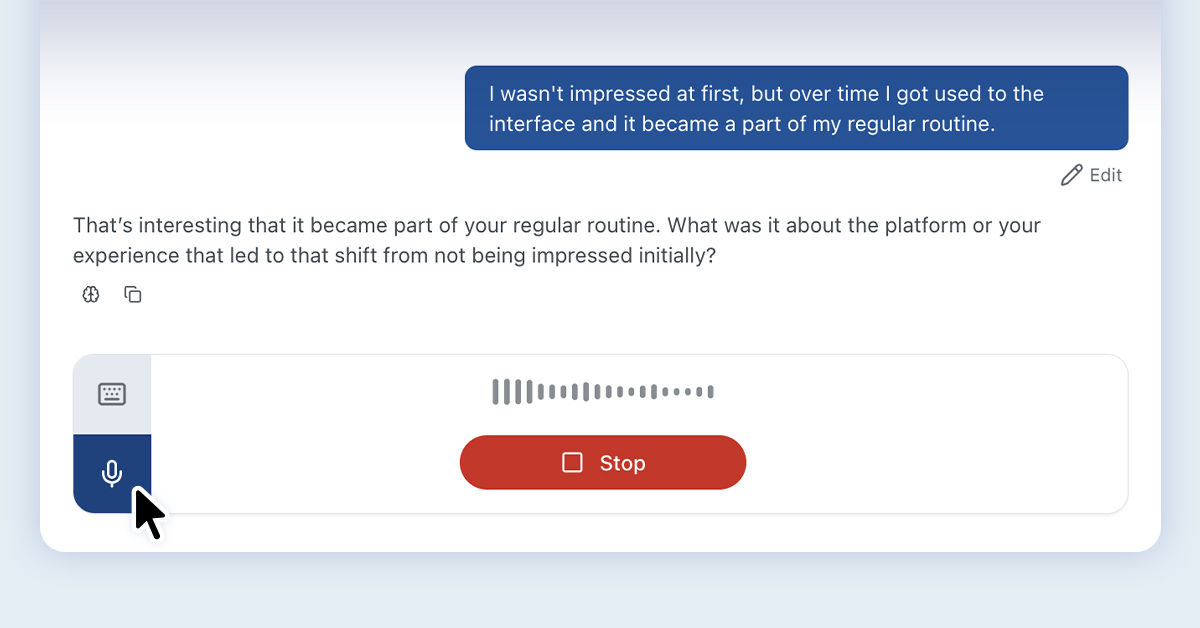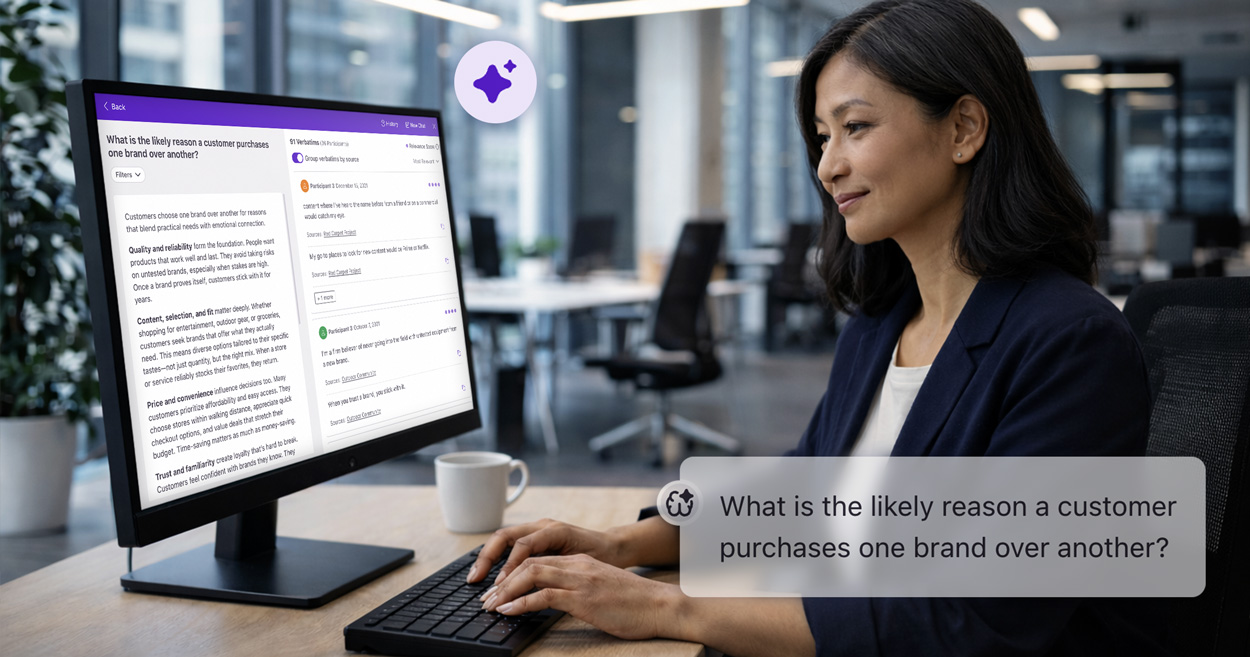Three Things To Consider When Conducting Online Qualitative Research
Even if you have years of experience balancing multiple projects, conducting onlinequalitative research, and analyzing data, do you ever experience a moment of panic? Doyou have an overwhelming sense of feeling lost, confused or are anxious about the research?Rather than succumbing to these doubts, we are here to help. Recollective can giveyou the confidence and support you need to advance your research and to help your workto be structured, focused and successful.
1. Stay on Target
It is important to stay grounded with your project’s goals. So start by writing out your research objectives and place them close to where you work. Clearly stating the objectives will keep your work focused. Online qualitative research allows for unlimited research possibilities that can be flexible and can change based on the depth and breadth of the design - which means that projects can become less clear as they grow in size. So to stay on-task, it’s important to frequently refer back to your main research objectives.
2. Create an Approach that Excites You & Your Participants
You've written out the study goals, and now you need to consider the best approach to accomplish them. Even if this is your first or fiftieth time conducting online qualitative research, you have technology on your side. Online platforms, like Recollective, make it easier to recruit a broad range of participants and create customized activities and tasks. Within Recollective, there are multiple avenues for online qualitative research that will add value to your data collection - including both asynchronous and synchronous activities. That means the possibilities for your research design are almost endless, so it's important to create your study using features and tools that are aligned with your research interests and deliver your desired output. At the same time, it's also important to consider the participant experience. You want to create an experience that not only targets your objectives but also creates an engaging, fun environment to encourage participation and generate more robust insights from your participants. When designing your study, feel free to explore the wide variety of tools within Recollective and mix and match activities, tasks and discussions to give your study an extra edge.
3. Be Creative and Enjoy the Process!
It’s also important to have fun when you are in the process of collecting your data. Use a wide range of task types as collectors, take notes and search for patterns by leveraging Recollective's built-in moderation, analysis and reporting tools. The Recollective platform takes cues from social media so that the experience is intuitive and enables even a first time user to navigate responses with ease and view results more efficiently. Not only can you customize a series of charts and graphs to suit your research needs, but you can also create tailored heatmaps, and easily download automated transcripts from video uploads. Recollective can reduce the time you spend on backend data analysis through the platform's filtering tools which allow you to customize output down to the task level by selecting format, date range, the participant(s) and segment(s) you want to include. Your research is important, and the platform is designed to make your job easier so you can concentrate on finding the answers to your key business questions. This is the time to take what was considered ‘common sense’ or ordinary to uncover something extraordinary through research.
Online qualitative research helps us to understand the interactions that emerge between people, groups, and social institutions in a convenient and cost-effective format. By using online qualitative methods, researchers can examine elements of everyday life that may be taken for granted or seen as ‘normal’ or ‘common’ knowledge. Through online qualitative research, you can gain the ability to use the voices, subjective experiences, and feedback of online communities to make more informed decisions.
How We Can Help
If you are still unsure or feel you could use additional guidance - Recollective is here to help you through the research process from start to finish. Recollective offers additional support services to provide you with the tools and information that you need in order to make your research successful. From consultation with our Research Services team, to getting your study programmed and into the field faster - we can provide you with an extra set of hands or point you in the right direction to get support from our network of global partners.







.svg)